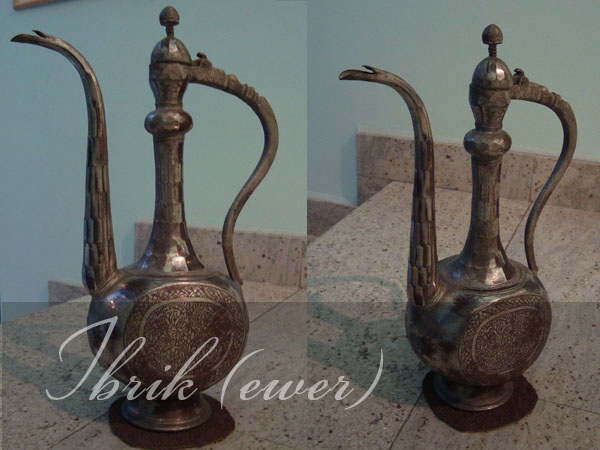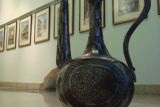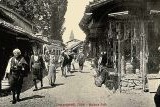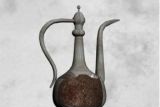


The arrival of the Ottoman Empire to the Balkans brought Islam and a new culture as well, that would leave a deep influence on the everyday life of Bosnians. The new culture meant that new customs were introduced and dramatic changes happened in the infrastructure. That was the time when many ‘hans’ (inns), ‘hamams’ (public baths), ‘dućans’ (stores) and houses were built creating the characteristic look of the 'čaršija' (centre of the town). The Ottomans also built the first water systems and myriad drinking fountains where the people would gather water which had now, along with bathing and cleanliness, become an important part of everyday life.
One of the most recognizable traditional Bosnian items is the ibrik. With a very recognisable elongated shape, most usually made of copper, with more or less ornaments, it was a mandatory part of everyday life just for its’ simple task: keeping water. The bigger ibriks were used for keeping cool water for drinking or washing, and the smaller ones were used for oil, ‘šerbe’ (sweet drinks) or other drinks as well.
The word ibrik is the Turkish version of the Arabian word ibriq, coming from Persian roots, from the word a:bri:z (a:b=water, ri:z=cup). In the Turkish and Arabian languages, as well as in these regions, ibrik is the name of the copper or brass ewer specifically used for keeping water. However, around the world this word is also used for a similar, smaller item used for making coffee, for which we use the word ‘džezva’.
The ibrik always had its role, weather the task was washing your hands before or after meal, or doing your morning washing, or doing your ‘abdest’ (religious washing before praying), or bathing in the public bath. When getting up in the morning, the morning washing would be done with water from the ibrik. The less privileged would pour the water by themselves or have the wife or a child help them. The more privileged would have servants who would hold the ibrik in one hand and place another item, the ‘legenj’ (a shallow metal bowl) under their master’s hands for the water they’d pour. They would also have a towel on their shoulder to give their master after the washing.
Young girls had the task of getting water from the drinking fountains with the ibrik. The going to the fountain would often become an excuse for gathering with other girls or talking and meeting with boys, which is a common theme of many traditional songs and writings of that period. In that way the ibrik became a symbol for friendship and love and seized it’s special place in the art of that period.
Even though the ibrik is hardly used for its original purpose today, it still lives through our tradition and inheritance because of the important part it once played in the everyday life of every Bosnian.


